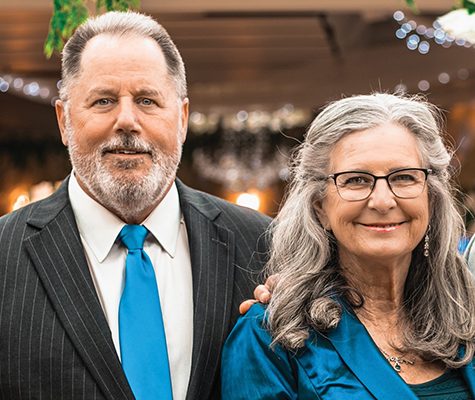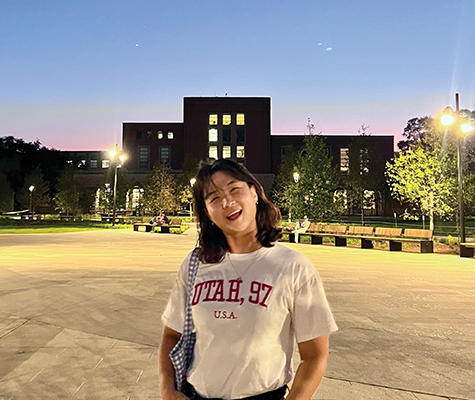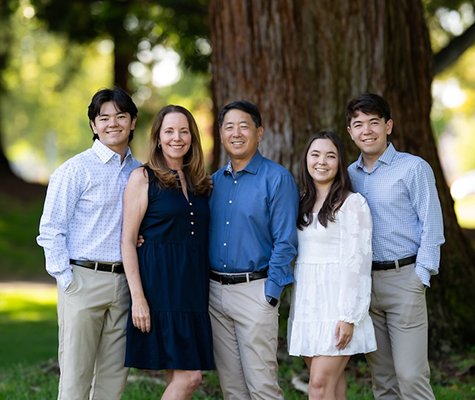Rice360:
A Blueprint for Success in Saving Lives

Rebecca Richards-Kortum — The Malcolm Gillis University Professor, Professor of Bioengineering and Co-director of Rice360 — and Breanna Kilgore
The Rice360 Institute for Global Health Technologies (Rice 360) was established more than 15 years ago when co-founders Rebecca Richards-Kortum and Maria Oden visited medical facilities in Malawi and saw not only an urgent need for access to medical technology, but also “equipment graveyards” — equipment that had failed in a harsh, low-resourced environment where parts and repair expertise were in short supply. The two Rice professors challenged their bioengineering students to rethink and re-engineer medical equipment to be inexpensive, rugged and easy to repair. From CPAP machines to radiant warmers to oxygen concentrators, Rice students, Global Health Fellows and researchers have designed health technologies to address unmet health needs around the world.
One of their most ambitious ventures, Newborn Essential Solutions and Technologies (NEST360), seeks to significantly reduce newborn mortality in sub-Saharan Africa through innovative engineering and an international alliance of policymakers and entrepreneurs. In January 2024, the NEST360 alliance launched Phase 2 of its groundbreaking mission with $65 million in funding from the Bill & Melinda Gates Foundation, the Children’s Investment Fund Foundation, The ELMA Foundation and generous individual contributors. Phase 1 included the design and maintenance of newborn health technologies alongside the implementation of national policies to improve the quality of care for mothers and babies. The second phase will impact five key countries that together contribute to almost 50% of the newborn deaths in Africa.
Rice360’s meteoric journey has been made possible by a contingent of support, including individual donors who believed in the mission and contributed to its success. In the stories that follow, you’ll read about Subha ’85 and Jim Barry ’84, whose active participation has helped to move Rice360 and the NEST360 program forward, as well as a passionate supporter who wanted to alleviate the financial burden of a condition she knew about firsthand.
Early Change Makers: Subha ’85 and Jim Barry ’84
This summer, Subha and Jim Barry joined President DesRoches and a delegation of other supporters in Malawi and Tanzania where they celebrated the Phase 2 launch of the NEST360 program. The group saw the many ways the program’s flourishing partnerships with health ministries, local doctors and nurses, and educators are improving their patients' chances for survival. Subha says that the trip was an extraordinary example of how philanthropic leadership and innovative scholarship at Rice continues to support the betterment of our world.
Subha and Jim became passionate about the work of Rice360 after their daughter Tara ’10 became one of the program’s first graduates. Their participation has evolved over the years, starting initially as donors and eventually as co-chairs on the Rice360 advisory board. “To be a part of a big dream that has become a reality is something we hope everyone has the opportunity to experience. Seeing Rice360 students collaborate with students in Tanzania and Malawi on solving big global health issues gives me hope for the future,” said Jim.
“Being a changemaker means embracing empathy, generosity and risk-taking, and it requires a deep belief in our collective responsibility to help one another thrive.”
—Subha Barry ‘85
Subha, a leader in C-suite-level DEI strategy, says that their belief in the program stemmed from Rice360’s unique approach to improving health outcomes through empathy, collaboration and hard data.
“Being a changemaker means embracing empathy, generosity and risk-taking, and it requires a deep belief in our collective responsibility to help one another thrive,” Subha said. “This journey in Malawi and Tanzania both reinforced my commitment to global health and deepened my resolve to foster inclusivity in every aspect of life, including our workplaces and communities.”
Pioneering Affordable Care
In front of Breanna Kilgore on the lab table is a fabric bag with a plastic liner that she’s filled with water. She’s holding a plastic ring she’s recently 3-D printed — the fifth ring she’s produced in the last three months. It’s a moment of truth: will it fit properly in the medical device she’s developing?
As a Rice360 Global Health Fellow, Breanna is among the current cohort of exceptional post-baccalaureate, early-career engineers. Past fellows have come from the United States, Mexico, Niger, China, Malawi, Bangladesh, Nigeria and Ethiopia to innovate medical technologies for low-resource settings.
“Rice360 Global Health Fellows not only have strong prototyping and technical engineering skills, but also empathy and compassion for working in resource-constrained settings. These talented engineers are extremely tenacious, creative and enthusiastic about working across diverse teams,” explained Betsy Asma, director of technology development at Rice360/NEST360.
Global Health Fellows travel around the world to gather information, implement solutions and test new products. “I want to solve the bigger problems,” Breanna explained. “We have fancy medical technology, but we are making it more accessible so communities like my hometown can benefit. I want to bridge the gaps between affordable health care and technology.”
The plastic ring Breanna is painstakingly troubleshooting is part of her work to develop a new ostomy bag, a small, waterproof pouch that collects urine or stool from the body through a surgically created opening in the abdomen called a stoma. Annual costs for ostomy bags and supplies are high if you are underinsured or uninsured, and she is part of the team developing Colostomates, a low-cost, reusable solution.
Initial funding for the Colostomates project was provided by an interested donor who learned about the project from a Rice360 presentation. She knew firsthand how hard it was to live with an ostomy, even with plentiful resources, and she wanted to help make high-quality ostomy supplies accessible for everyone, no matter their economic situation. Her seed donation of almost $190,000 has funded many years of Colostomates’ early development and testing. This year, the Cullen Trust for Health Care stepped in with a $150,000 grant that will take the project all the way to manufacturing.
“Many innovative Rice360 ideas emerge from students’ capstone projects but often sit on the shelf because of a lack of funding,” explained Emily Bull, Rice360’s director of development. “Support from individuals, corporations and foundations, whether they’re smaller monthly donations or large one-time contributions, funds the path to commercialization and transforming lives in low-resource settings, both in the U.S. and internationally.”
Accelerate the Vision
The Rice360 Global Health Fellows program is working to solve health care challenges in Texas and around the world. To support this incredible initiative, contact Emily Bull, director of development, Rice360 Institute for Global Health, at emily.t.bull@rice.edu or 713-348-4279.






